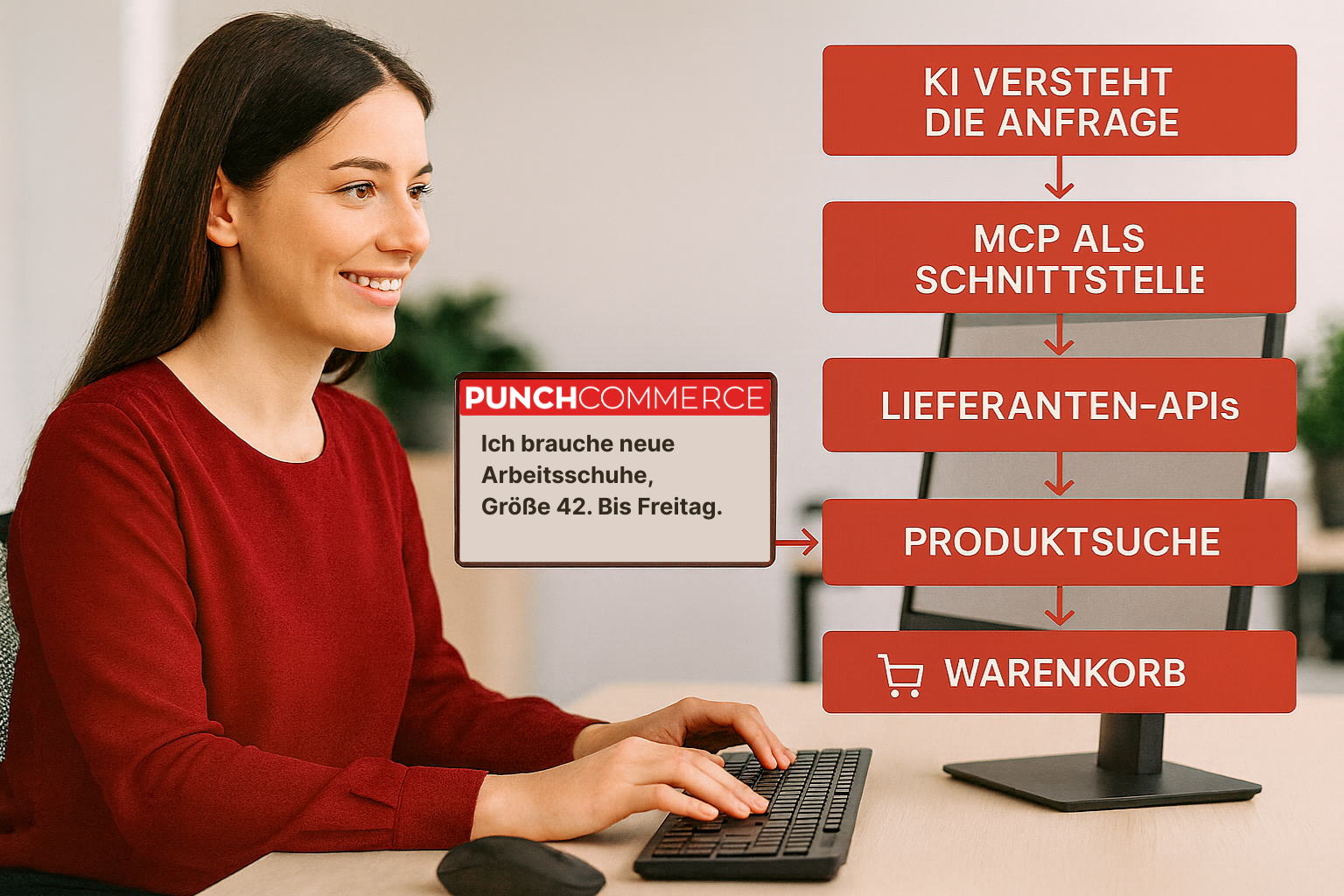In this article, our Managing Director Patrick Dornbusch explains how the Model Context Protocol (MCP) bridges the gap between AI agents and B2B procurement. He shows why standards such as OCI and cXML alone are no longer sufficient - and how MCP provides the decisive translator. A practical look at how AI agents will soon simplify procurement processes in companies.

2025 is the year of AI agents Ever since Gartner published its Hype Cycle 2025 , the topic has come up in every AI discussion I have. Understandable. When I look at the developments in B2C commerce, I am also enthusiastic about what is already possible. With my private online shopping problems, I often couldn't tell whether a real person in customer support was answering or an AI.
When I look at B2B procurement, however, it's a completely different story: the same OCI and cXML protocols that have been the gold standard for 20 years still dominate. We have this insanely intelligent agent technology that could also revolutionise internal procurement. If it weren't for the well-known communication problem - one doesn't speak the language of the other.
The Model Context Protocol is a generic standard for context data in AI systems. Sounds abstract? It is, but the effects are very concrete. MCP enables us as an external service to communicate with different AI models in a uniform way. In a way, it is a super translator.
For our internal procurement use case, this means that an AI agent is able to use MCP to search for products from suppliers, place them in shopping baskets and forward them to ERP systems. All in a language that every AI system understands. This means we have a uniform standard and do not have to build a separate interface for each LLM.
An example from our day-to-day work: An employee chats with the company's own AI assistant in Microsoft Teams and says: "I need new work shoes, size 42, by Friday" The process in the background:
These downstream steps remain entirely the responsibility of the company. PunchCommerce only provides the prepared data. It does not interfere with roles, budgets or authorisations.
The special feature: The employee remains in their familiar working environment, the internal processes remain unchanged, but the search process is drastically simplified.
For me, our role in the AI game is clearly defined: We are the interface. While others are investing billions in the development of AI agents, we are focussing on connecting these agents with the existing B2B infrastructure.
We are working on developing an MCP-compatible interface specifically for B2B procurement and PunchOut processes that can do the following:
This means that if a company has connected 20 suppliers to PunchCommerce, the AI model can search across all 20 suppliers - without anyone having to worry about the technical integration.
While the e-commerce industry is discussing the next big AI revolution, we are working on the standards and infrastructure that will make this revolution possible. We are currently working on finalising and testing our MCP interface for PunchOut processes. But it's not just the purchasing side that is waiting for intelligent automation; suppliers also want to connect their systems via MCP. More on this in a later article.
The future of B2B procurement will not be shaped by a single super agent, but by standardised interfaces that connect various AI systems with the existing business world. We build these bridges. Today for PunchOuts, tomorrow for fully automated procurement.
*Already working with PunchOut protocols and want to explore the possibilities of MCP for your organisation? Speak directly to our Managing Director Patrick Dornbusch - we are looking for partners with whom we can shape the future of B2B procurement together.
If you have any questions or suggestions, just send us an email hallo@punchcommerce.de or call us at +49 6142 / 953 80 - 60. We appreciate your feedback!
Back to the journal